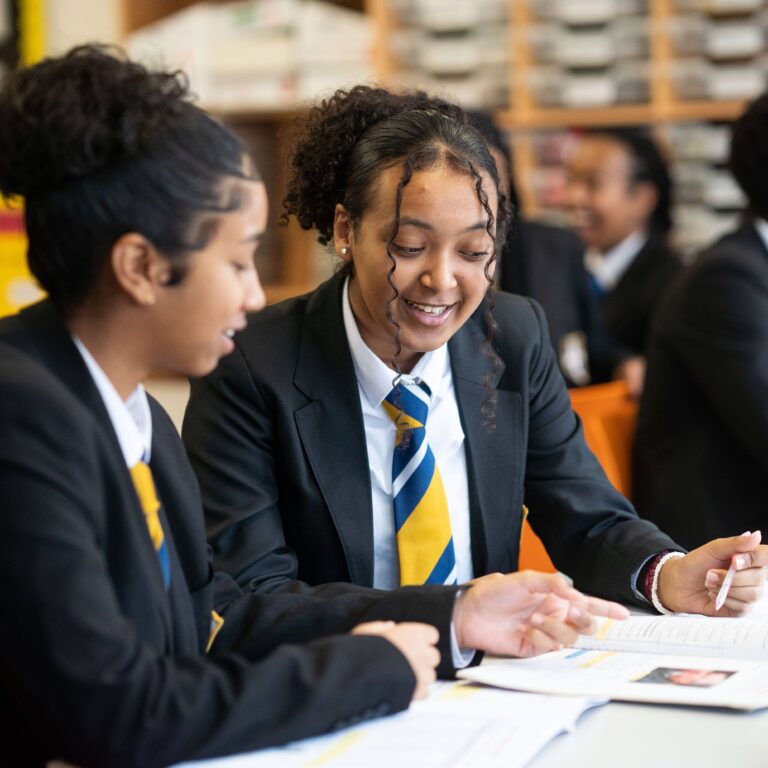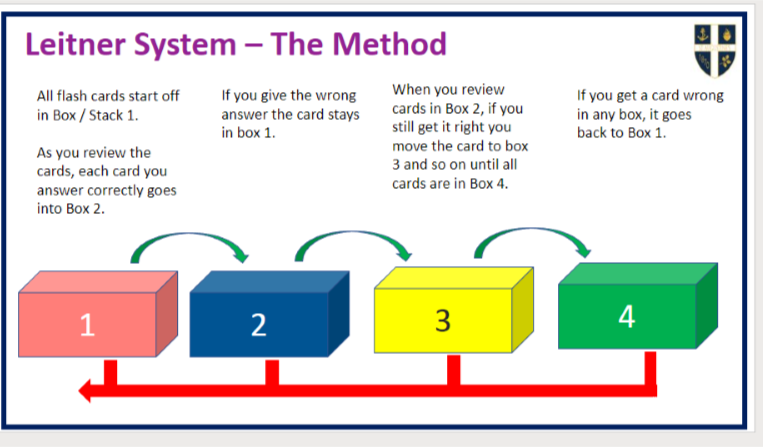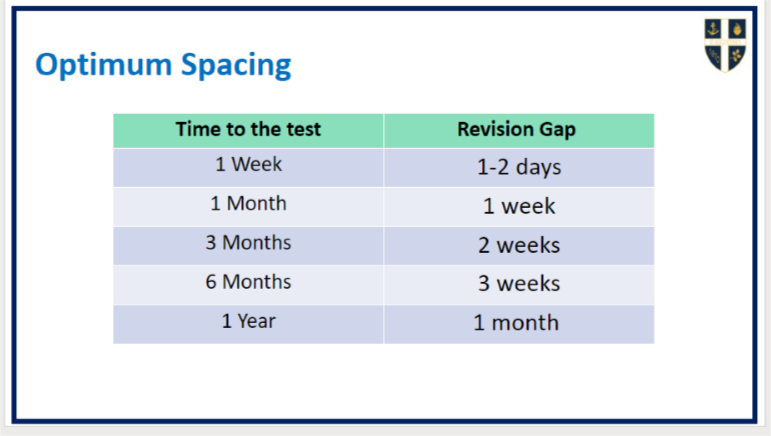There are several different ways that you can revise and the most important thing to do is find a method that works for you and stick to it! Look through the various methods below and try them out.
1. Using Flash Cards for Revision
Using flashcards is a repetition strategy. They are a simple ‘cue’ on the front and an ‘answer’ on the back. Flashcards engage “active recall”. Flashcards can help you learn as they can help you to memorise facts quickly. Drilling – flash cards help you to practise the same information repeatedly – and as we know, practice makes perfect! (AO1, AO2).
How to make Flash Cards:
- Ensure that the flashcards have a question or key term on one side and the answer or definition on the other.
- Ensure the right questions and knowledge are on the cards.
- Keep information as short as possible.
- Write clearly. You should be able to read what you wrote at a very quick glance.
- Use different coloured cards or pens to categorise your flashcards. For example, use a different colour for each subject or topic. This can help your brain to categorise information better.
- Make your flashcards as soon as you’ve learnt the topic in class.
How to use Flash Cards:
Use the Leitner System. The key is that the cards you know less well are reviewed more frequently than the cards in the higher boxes.
The key is that the cards you know less well are reviewed more frequently than the cards in the higher boxes.
2. Spacing and Timing of Revision
- Optimum Spacing – Research suggests there is an ‘optimal gap’ between revision sessions so you can retain the information.
- If the test is in a month, you should review the information around once a week. If the test is in a week, create time once a day.
3. Interleaving
- Interleaving is a method to use when revising to help you remember more for the exam and to understand it better as well
- Learning is spread over time rather than concentrating on narrow topics one after the other
- Break units down into small chunks and split these over a few days rather than revising one whole topic all at once.
- Decide on the key topics you need to learn for each subject.
- Create a revision timetable to organise your time and space your learning
4. Chunking
- It is a technique which can improve your memory.
- Chunking is the process of taking individual pieces of information (chunks) and grouping them into larger units.
- Break down larger amounts of information into smaller units.
- Identify similarities or patterns.
- Organise the information.
- Group information into manageable units.
What you should never do
- Just read through a pack of flashcards without shuffling them! You are learning the order of the flashcards, not what is on them properly!
- Revising for eight hours in one day is not as effective as doing one hour of revision for eight days.
- Cram, cram, cram! This is not effective!
- Don’t think revising all night is the best preparation for you the next morning.




